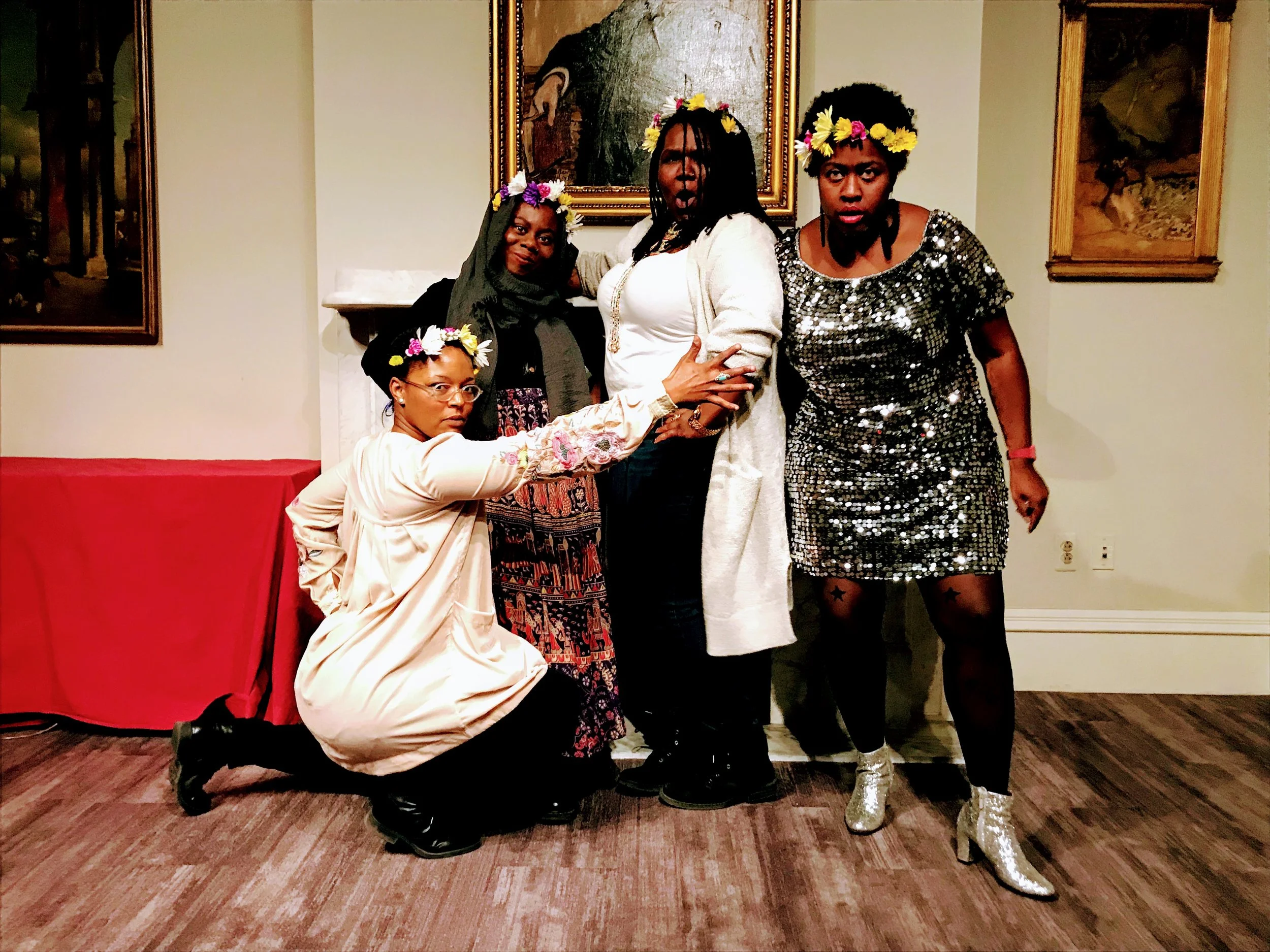Rent Parties 2017 to 2020
Blues for Black Opals, February 2017
This event got its name from The Black Opals, a literary club made up of young black intellectuals and creative writers in Philadelphia who published several issues of the literary journal Black Opals between 1927 and 1928. The group included Jessie Redmond Fauset, Arthur Huff Fauset (her brother), Allen Freelon, Nellie Bright (secretary of the group), and Mae V. Cowdery. The group was supported by Alain Locke (Philadelphia native) and Langston Hughes. Black Opals is the Philly counterpart to the 1926 journal FIRE!!, which featured the work of Harlem Renaissancers Hughes, Richard Bruce, Countee Cullen, Wallace Thurman, Helene Johnson, Zora Neale Hurston, Arna Bontemps, Gwendolyn Bennett, and Aaron Douglas.
Eight years ago, I came across a few issues of Black Opals in the Charles L. Blockson Afro-American Collection at Temple University. I've since felt that the work and story of this collective, as well as Philly's relationship to the Harlem Renaissance, should be more thoroughly researched and shared with the city and its writers. This event is a first step. When the Rosenbach reached out to me to coordinate a poetry event this year, I decided to focus on Philly's African American literati.
To help me both uplift and celebrate the legacy of the Black Opals at this Rosenbach event, I asked three dear poets and friends to read two poems by a Black Opals poet, in addition to reading their own work.
Featured Poets:
Afroeaters:
Ask Yo Mama, September 2017
Tonight’s theme is “Ask Your Mama,” after a little known work in Hughes’ opus, Ask Your Mama: 12 Moods for Jazz, written in 196? Folks are probably more familiar with Hughes’ “I, Too, Sing America” or his Simple story series, but Ask Your Mama, a serial poem with notes for instrumentation in the margins, has been performed by the likes of opera singer Jessye Norman, rapper Ice T, and Philly’s homegrown hip hop band, The Roots. The poem is a avant garde marvel of creative radicalism and revolt. Hughes demonstrates the breadth of his knowledge of musical forms and traditions as well as his cosmopolitanism. He was clearly well-traveled and well-informed about the social, economic, and political forces of his day. Yolanda Wisher & The Afroeaaters performed selections from the section “Cultural Exchange in “Ask Your Mama.”
Featured Poets:
Afroeaters:
Black Girl Magic, January 2018
Tonight’s Theme is “Black Girl Magic.” I first became acquainted with the phenomenon growing up in my house with two little sisters and black womenfolks all round. How my mother made a meal out of nothing in the cupboards. How I used to put together outfits from the thrift store in high school. When I read Ntozake Shange’s novel, Sassafras, Cypress & Indigo, and it opened with the words that are now part of my daily mantra: Where there is a woman, there is magic.
Black Girl Magic is now a concept and movement that was popularized by CaShawn Thompson in 2013. The concept was born as a way to "celebrate the beauty, power and resilience of black women", as described by Julee Wilson from The Huffington Post, and to congratulate black women on their accomplishments. Referring to a speech made by Michelle Obama at the Black Girls Rock Awards, Thompson explains that black women around the world persevering despite the adversity inspired her to spread the concept of Black Girl Magic.[1] With these women in mind, Thompson created the social media hashtag, clothing campaign, and rallying cry "Black Girl Magic", in the hopes of counteracting negativity society places on black women.
But we’d best remember that Black women and black girls aren’t just magic or majesty, we’re human. And the story of Phillis Wheatley is a good example of that. I think Phillis Wheatley is one of the originators of Black Girl Magic. She was certainly the first black woman poet I encountered. As a young black girl poetess coming up, doting relatives and family friends gave me collections of her work at Christmas and on birthdays. “The first black poet in America to publish a book” and someone who lived most of her life as a slave, she was a Black Girl prodigy. The triumphs and tragedies of her life - from being received at the English court and defending her intelligence against an academic panel of white men to dying impoverished with the last of her works undiscovered - her life illustrates black girl magic and its limitations in a society that continues to oppress the bodies of black women. A copy of Wheatley’s 1773 edition, Poems on Various Subjects, Religious and Moral, can be found here among the Rosenbach’s collection. I’ve held it in my hands.
Featured Poets:
Afroeaters:




